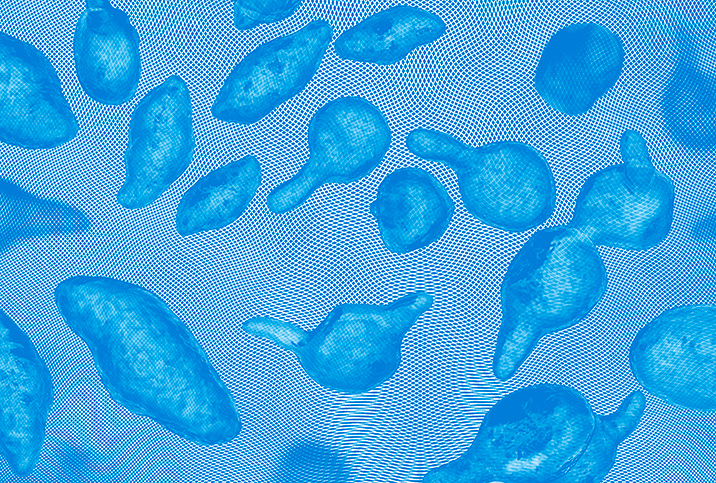The Mystery of Mycoplasma Genitalium

Discovered in 1981, Mycoplasma genitalium (MGen) is a sexually transmitted disease (STD) that affects the urinary and genital tracts of both sexes.
Statistics indicate MGen affects up to 2 in 100 adults (for low-risk groups) but can be as prevalent as affecting 19 in 100 adults for high-risk groups.
Despite the serious complications MGen can cause, it's not among the ranks of the most commonly known STDs. Let's turn to the experts to find out why.
Why isn't MGen more widely discussed?
"I really don't know," said Laura Purdy, M.D., medical director at Wisp. "We learn about it in medical school, but I'm not sure why it is not as well known in the general population."
Part of the problem appears to be the inherent difficulty accessing diagnostic tests for MGen. The Food and Drug Administration (FDA) only just approved a detection method in 2019. Up until that time, there was no FDA-approved test for Mycoplasma genitalium.
Toni Hazell, M.D., a general practitioner at Somerset Gardens Family Healthcare Centre in the United Kingdom, said there are similar problems in the U.K.
"It's certainly less high profile than chlamydia, likely because we often can't test for MGen," Hazell said. "Clinics do not always have access to as many tests annually as they need. And they are usually only available in specialist sexual health clinics, not at your primary care doctor's."
Testing for Mycoplasma genitalium is often not routine, even in sexual health clinics. You are only likely to be tested if you have symptoms. It's also imperative to encourage your partner(s) to receive testing as well.
"So, if people aren't being diagnosed with MGen, it's unlikely that many people will have heard of it," Hazell added.
Symptoms and complications of MGen
MGen doesn't always result in symptoms and can clear on its own. However, the Centers for Disease Control and Prevention (CDC) reports that MGen is responsible for approximately:
- 15 percent to 40 percent of persistent or recurrent urethritis cases in men— that is when the urethra (the tube that carries urine from the bladder out of the body) becomes inflamed.
- 10 percent to 30 percent of cervicitis cases in women. Cervicitis is the irritation or infection of the cervix, which connects the vagina and the uterus.
Symptoms of Mycoplasma genitalium include:
- Pain when urinating.
- Discharge from the vagina or penis.
- Pain in the lower abdomen.
- Pain in the testicles.
- Abnormal vaginal bleeding, including after sex.
- Proctitis in men—an inflammation of the rectum causing anal pain and discharge.
Another issue in diagnosis and treatment is the fact that nearly all of the symptoms listed above can stem from other STDs and STIs. Because of this, it's imperative to ask your healthcare providers for all-encompassing tests if you're experiencing any of these symptoms.
"If untreated, MGen can lead to pelvic inflammatory disease (PID) in women or prostatitis in men," Purdy said. "Both of these are very severe infections that can result in sepsis, which is a widespread, more bodily involved infection. A lot of times, these infections have to be treated with high-dose oral or injectable IV antibiotics."
Hazell said that PID is associated with premature birth and spontaneous abortion.
"The latest guidance from the British Association of Sexual Health and HIV says there is no direct link between MGen and subfertility," Hazell said. "However, PID is strongly linked with subfertility, so there is likely a connection."
How to protect yourself
As with most STIs and STDs, MGen is spread through unprotected vaginal or anal sex. Thus, the best way to protect yourself is by wearing a condom when having sex.
"Use a condom for every sexual encounter until you are comfortable that you are in an exclusive relationship and you are both free from STIs [and] have had an STI check," Hazell advised.
"Having more than two sexual partners and bacterial vaginosis in the last year can be a risk factor for women specifically," Purdy added. "Research also shows that the risk is higher in HIV-infected women, as well."
If you are sexually active—and especially if you have multiple sexual partners or don't consistently use condoms—it's essential to have a regular checkup at a sexual health clinic. If you have any symptoms of MGen or are concerned you could be at risk, speak with your local health team about getting tested.
MGen and antibiotic resistance
MGen is typically treated with antibiotics, most commonly doxycycline. However, it's one of many STDs that's becoming more antibiotic-resistant.
"Thirty to 40 percent of infections are not resolved by an adequate course of doxycycline," Purdy said. "It appears that it is also becoming resistant to azithromycin, which, along with doxycycline, is the classic treatment for MGen."
The CDC advises that there is a high likelihood of treatment failure, but if you're receiving treatment, it's important to complete your prescribed course. Plus, testing post-treatment is essential. If the recommended antibiotics don't work, expert consultation is needed to guide further treatment.
"The best practice is to test the infection to see what antibiotics it is susceptible to," Purdy advised. "This allows for directed therapy and a lower likelihood of treatment failure."
If you're being treated for MGen, you should not have sex until 14 days after the start of treatment and until all symptoms have resolved. You can still infect others during this time. Being re-exposed to Mycoplasma genitalium can also increase the risk of antibiotics failing.


















